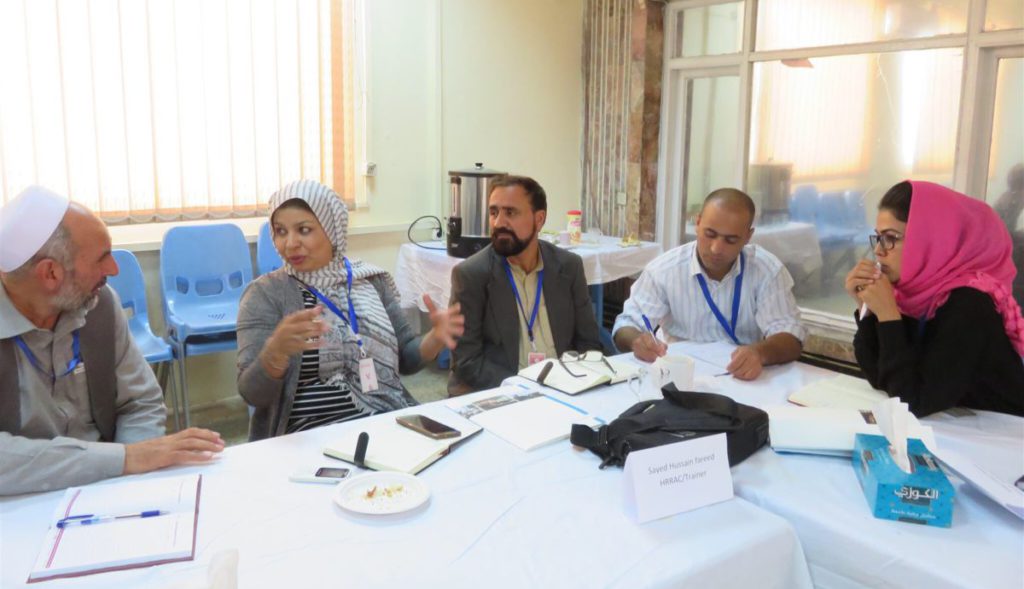Decades of war have made Afghanistan one of the toughest places on Earth for women. According to the country’s Central Statistics Organization, roughly 84 percent of women and girls in Afghanistan are illiterate and have no formal education. Women also face different types of domestic violence and figures from the UN and a study by Global Rights indicate that over 61 percent of women experience multiple forms of abuse.
It is under this backdrop that in 2016 The Hague Academy for Local Governance joined forces with Care International to provide trainings on inclusive governance for civil society organisations (CSOs) and local authorities in Afghanistan as part of the 5-year programme titled Every Voice Counts (EVC). The programme is financed by the Dutch Ministry of Foreign Affairs.
“The trainers – eight women and eight men – were very committed, enthusiastic and eager to learn. I was impressed by the great input they provided for enhancing citizen participation in their communities.”
Samir Marmouri, Programme Officer
Based on the assumption that inclusive governance can lead to peace and stability, EVC seeks to promote effective and inclusive decision-making processes, especially for women, in the world’s most fragile states. In this programme, the Academy is responsible for designing and delivering trainings to strengthen the capacity of local authorities and CSOs on issues related to inclusive governance. To date, the EVC programme works in six countries: Afghanistan, Burundi, Pakistan, Rwanda, Somalia and Sudan.
In September 2017, Hague Academy Programme Officer Samir Marmouri travelled to Kabul to deliver a four-day training of trainers on inclusive governance for 16 Afghan CSOs based in Kabul, Balkh, Parwan and Khost Provinces. The training focused on issues of citizen participation, social exclusion and inclusion and gender analysis.
One of those involved is Gulzamir Haqbayan, who serves as Programme Manager for Every Voice Counts. In this video, Mr. Haqbayan briefly describes the goals of EVC in Afghanistan.
“Under the EVC programme, we work with three national NGOs, 16 local civil society organisations to have good advocacy efforts for excluded groups, particularly women and girls. At the same time, we work with the local authorities to ensure a [safe] space for all these groups. The ultimate and expected results under this programme are to include all excluded groups in governance processes and ensure social accountability and improve service delivery.”
Related courses
We offer a diversity of courses throughout the year. Here are several other courses you might like.


